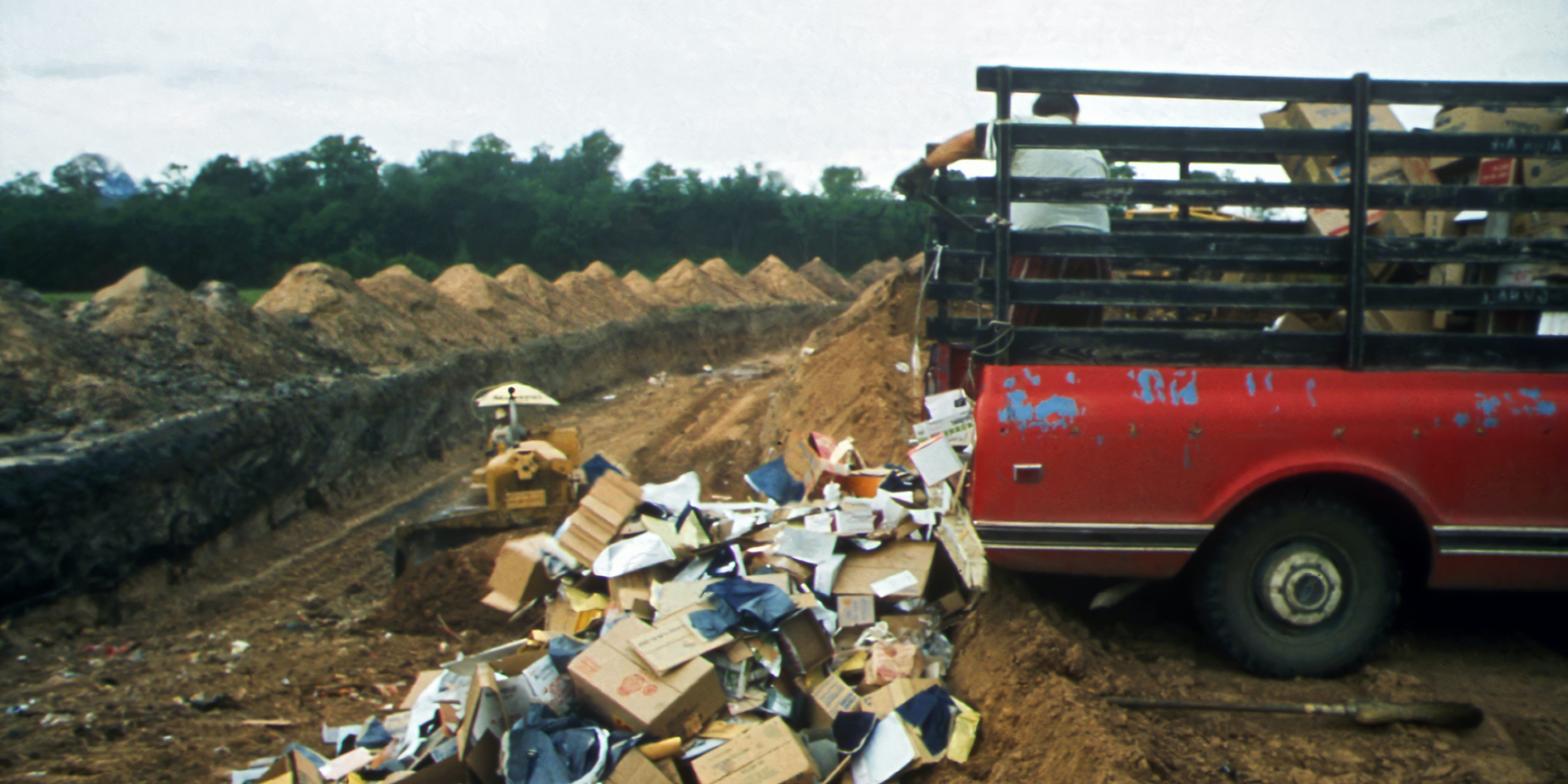Originally published 8 July 2007
Many communities in the United States are talking about banning plastic bags. Here in Ireland we’ve been required to bring our own shopping bags to the market for years. But Lord knows there’s still plenty of trash. Most can be recycled, but still…how is it possible that two people make so much waste?
I am a guy who straightens bent nails. I reuse my disposable razor until the blade draws blood. Most homes have a junk drawer; at our house every drawer is a junk drawer. Waste not, want not, that’s our motto. Still, the trash bins overflow.
And that’s just the stuff we toss out directly. There’s also the waste we’re indirectly responsible for: the carcinogen-tainted water, poisonous fumes, ozone-depleting chemicals, elevated levels of carbon dioxide, and spent radioactive fuel. The toxic outpourings of “civilized” life.
But wait. Let’s put this in perspective. It’s not the first toxic waste crisis in the history of life. We’ve been there before — and survived.
Consider the first living creatures of the Earth, the single-celled microbes that inhabited the planet nearly 4 billion years ago. Those were the good old days. Life was simple. Live in the sea, graze on sugar, ferment the sugar to get energy to live.
Brewers today use the same process. With fermentation, sugar is broken down into carbon dioxide, alcohol, and energy. Brewers are after the alcohol. Our earliest ancestors wanted the energy. For the microbes, alcohol was an unwanted byproduct, and a dangerous one at that.
Alcohol is poisonous to living things, as anyone who has experienced a hangover knows. Our alcohol-producing microbial ancestors stewed in their own boozy juice, permanently buzzed, an unending morning-after.
It was the first toxic waste crisis.
Meanwhile, as life proliferated, it was running out of food. In the warm seas of the early Earth, sugar molecules had been cooked up spontaneously by lightning storms, the Sun’s ultraviolet light, and radioactivity. These sugars were sustenance for the fermenting organisms. But the random synthesis of carbohydrates couldn’t keep up with life’s exponentially burgeoning numbers. A crisis was in the making.
Then life invented photosynthesis.
Certain early bacteria, ancestors of plants, evolved a way to turn carbon dioxide, water, and sunlight into sugar. The food crisis was solved. Life moved to a new plateau of self-sufficiency — an agricultural lifestyle, if you will, rather than a life based on scavenging. Unfortunately, this chemical breakthrough into self-sufficiency included a deadly byproduct: oxygen.
Oxygen combines promiscuously with almost anything. Iron rusts, wood burns, life decays — all forms of oxidation. As living organisms made carbohydrates from sunlight, the level of free oxygen built up in the environment. Our microbial ancestors were in danger of going up in smoke.
The second toxic waste crisis.
For a time, the oxygen produced by photosynthesis combined with iron dissolved in sea water. Iron oxides precipitated out of solution and accumulated on the ocean floor. These iron-rich sediments were like a vast landfill, taking up and rendering harmless life’s waste. But eventually, about 2 billion years ago, the seas had been swept clear of iron and the level of oxygen in the atmosphere began to dangerously rise. Fortunately, life had used the interval to learn how to tolerate oxygen and turn it to good use. It invented respiration.
With respiration, life found a way to get energy from carbohydrates without the alcohol byproduct of fermentation. And by breaking down the carbohydrate molecules more completely, more energy was made available than previously.
Respiration solved not one, but two toxic waste crises. Life sobered up. Oxygen was turned to good use. Fermenting microbes faded from prominence, and, with their greater energy resources, the respirers got down to the business of inventing sex.
Let’s not sell our microbial ancestors short. They faced two toxic waste crises of monumental proportions and found within themselves the resources to cope or turn waste to advantage.
Here are the lessons we can learn from them:
1) Evolutionary “progress” always involves waste.
2) Landfills are temporary solutions.
3) Life on Earth will adapt to our worst foulings of the environment.
But before we become complacent, there is also:
4) Life will adapt to our worst foulings of the environment, but it may take millions of years to do so — and the continued existence of human beings might not be part of the solution.



